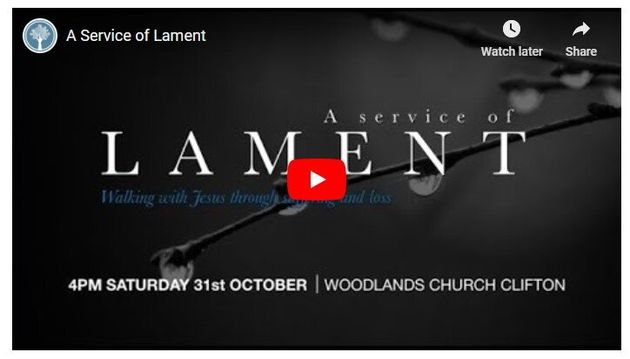Whether Covid-19 will lead to a resurgence of faith in Europe will be seen in years to come but, for now, it has forced churches to innovate in their responses to grief and death and share the hope in Christ beyond the walls of the church.
The Covid-19 pandemic is the closest thing to an existential threat that most Europeans have experienced in their lifetimes. Not since the Second World War has something so profoundly affected the lives of all Europeans simultaneously like this.
It has impacted our health, both physical and mental, our livelihoods, our freedoms, our social interactions, and is likely to continue to do so for years to come.
Both individually and as societies, when faced with such existential challenges, we tend to use a set of coping strategies to reduce our sense of insecurity and one of those is the practice of religious faith. In short, it is in moments of crisis that we remember God.
Drawing on this simplest of observations, Norris and Inglehart (2004) suggested that religious vitality in a given context could be explained by the “existential security” that was experienced by people living in that situation. They observed that, where life was lived under the constant threat of war, poverty, disease, famine, corruption, etc., these societies frequently had high levels of religiosity.
Conversely, when a society enjoyed peace, welfare provision, good healthcare, economic prosperity and good governance, then religious belief and practice was often observed to be weak.
So, will the existential threat that Covid-19 poses to Europeans, not just for their health, but also to their freedoms and economic prosperity, have an impact on secularisation in Europe? That is the suggestion that Foshaugen (2020) makes: “economic development and an increase in material security have been suggested as the primary causes of secularization in the West… If the COVID-19 pandemic negatively impacts these two causes of secularization and leads to raised levels of existential insecurity and angst, then it is plausible that there will be an upsurge in religiosity in the West.” (Foshaugen, 2020, p5)
There is anecdotal evidence of an upsurge in Google searches for prayer during March 2020 (Kelly-Linden, 2020) and a tripling in the number of Alpha courses running in the UK during the first wave of the pandemic (Evangelical Focus, 2020) would appear to support this idea.
Fascinatingly, sociologists of religion in Italy, the first western country to be hit by the pandemic, have already gone some way to testing this hypothesis. Measuring virtual attendance at religious services (via web, radio and TV) and the practice of prayer, Molteni, et al (2020) found that Italian people who had someone in their family with Covid-19 did show a higher degree of religiosity. As they put it, “the findings suggest that religious behaviour – even if in different forms – is a compelling coping strategy for people confronted with events undermining their existential security.” However, there was a difference between those with a religious heritage to draw on (measured by regular attendance at a religious service at age 12) and those with a secular upbringing. “The findings confirm that individuals who do not already have some sort of religious reservoir do not rely on religion when dealing with situations impacting their existential security” (ibid.).
But whether or not there is a longer term religious revival in the wake of Covid, it is clear that for now churches have a significant role to play in standing alongside people who feel the very foundations of their life are shattered, and showing them the hope there is to be had in Christ.
Funerals are one of the ways where the church often performs a vicarious act on behalf of individuals who may not have a committed faith (Davie, 2002). People who do not usually attend church may potentially be present in a church building, or at least experience public prayer and hear scripture read. It’s also a chance for a church leader to visit the grieving family and offer comfort and support.
Covid-19 has led to legal restrictions on numbers of people attending funerals, and on the whole, churches have been careful to keep the law. In some countries such as Spain, funeral ceremonies were not allowed at all during the first wave of the pandemic. Although they are TV now allowed, in Spain only up to 30% of the capacity of the mortuary chapel can be permitted to attend – with regulations constantly changing. In other countries, as few as 10 people can be present when a loved one is buried or cremated, although some churches have livestreamed funeral services meaning that sometimes more people than would have usually attended can at least observe the proceedings.
Where churches have been forced to close due to lockdown, the sense of being ‘open for business’ to support people outside the church is less, and visiting restrictions mean it is harder for church pastors to connect with people as they grieve.
So what creative ways have churches tried to reach out to people and support them in their loss?
Rosie is an Anglican vicar in a rural part of the UK. “Funerals are usually a time when the whole community gathers; we never do a small funeral,” she says, adding that it has been difficult for the community not to have the traditional big gatherings such as funerals or markets. “We have now developed an alternative ritual, where the funeral procession travels around the whole village rather than going straight to the church from the funeral parlour, and people stand by their front door and clap, thus expressing their sympathy for the family.”
Some churches such as St Mary’s Anglican church in Yate, UK have used their outdoor space to help people grieve in more creative ways by creating a labyrinth of lights in their graveyard. The Labyrinth enables people take time out to contemplate their lives in relation to God. People start at the edge and walk to the centre, bringing a thought or question before God as they do so. As they return outwards again, they do so with the symbolic sense of being reborn, leaving their worries at the centre.
The St Mary’s Labrynith uses 100 solar lamps to mark out the path, representing God’s light in the darkness. In addition, local people are invited to dedicate a light to the memory of a loved one, enabling a sharing of grief and hope in the middle of this loss.

Online resources have also helped, for example the Spanish Evangelical Alliance promoted ‘Dando Vida al Recuerdo’ on the 14 June, among evangelical denominations in the country. “This was a day in which all churches could remember the people they have lost, and pray for the country, taking time to identify with the suffering of thousands.”, explains Joel Foster of Evangelical Focus. “An adaptable/open programme was proposed to the churches of about 20 minutes, including a manifesto, a selection of songs, Bible readings, a video etc. The response was big, with dozens of churches responding and some streaming it online publicly.”
All Souls day at the end of October/beginning of November presented another opportunity to remember those who had died, with many state churches organising ‘All Souls or ‘All Saints’ services, the day when churches traditionally remember those who died. But some non-denominational churches also used the time to enable people to grieve, for example Woodlands church in Bristol who held an online ‘Service of Lament’ on 31 October. The video was viewed over 700 times on Facebook in the first 24 hours, and now has had over 1300 views from around the world.

‘In a charismatic church, the dominant culture is often one of hope and celebration. We don’t often pause to be honest about the pain and suffering we feel in the loss. We want to hurry through it, try to find a solution and get out of this uncomfortable place,’ explains senior pastor Dave Mitchell. ‘Having an online service of lament expressed the need to allow our grief to take its time. We start with expressing the pain, then gradually move through it and bring in hope. We wanted to go for a service that was visually beautiful, giving people with artistic talent the opportunity to do something in a different vein and call beauty out of pain suffering and loss.”
Whether Covid-19 will lead to a resurgence of faith in Europe will be seen in years to come but, for now, it has forced churches to innovate in their responses to grief and death and share the hope in Christ beyond the walls of the church.
Jim Memory, church planter and lecturer in European Mission at Redcliffe College (UK).
Jo Appleton, researcher and writes about mission in Europe for Vista Magazine.
This article first appeared in the December 2020 edition of Vista Magazine.
- Davie, G., (2002) Europe: The Exceptional Care: Parameters of faith in the modern world; London: Darton, Longman and Todd Ltd.
- Evangelical Focus (2020) Alpha course registrations triple in the UK due to the lockdown 11 June 2020 [online] https://evangelicalfocus.com/europe/6462/alpha-course-registrations-triple-in-the-uk-due-to-the-lockdown
- Evangelical Focus (2020) Spanish evangelicals will bring ‘memory to life’ for the victims of coronavirus 8 June 2020[online] https://evangelicalfocus.com/europe/6393/spanish-evangelicals-will-bring-memory-to-life-for-the-victims-of-coronavirus
- Foshaugen, E.K., (2020) The role of religion in the Covid19 pandemic.
- Considering Pippa Norris’ and Ronald Inglehart's secularization theory [online] https://www.researchgate.net/public ation343761312_The_role_of_religion_in_the_Covid19_pandemic_considering_Norris_and_Inglehart [accessed 13 Nov 2020] Kelly-Linden, J., (2020)
- Pandemic prompts surge in Google prayer The Telegraph Newspaper 22 May 2020 [online] https://www.telegraph.co.uk/global-health/climate-and-people/pandemic-prompts-surge-interest-prayer-google-data-show/ [accessed 16 Nov 2020]
- Molteni, F., (2020) Searching for comfort in religion: insecurity and religious behaviour during the COVID-19 pandemic in Italy, European Societies, Vol 22, Issue 4 [online] DOI: 10.1080/14616696.2020.1836383 [accessed 16 Nov 2020]

Las opiniones vertidas por nuestros colaboradores se realizan a nivel personal, pudiendo coincidir o no con la postura de la dirección de Protestante Digital.
Si quieres comentar o